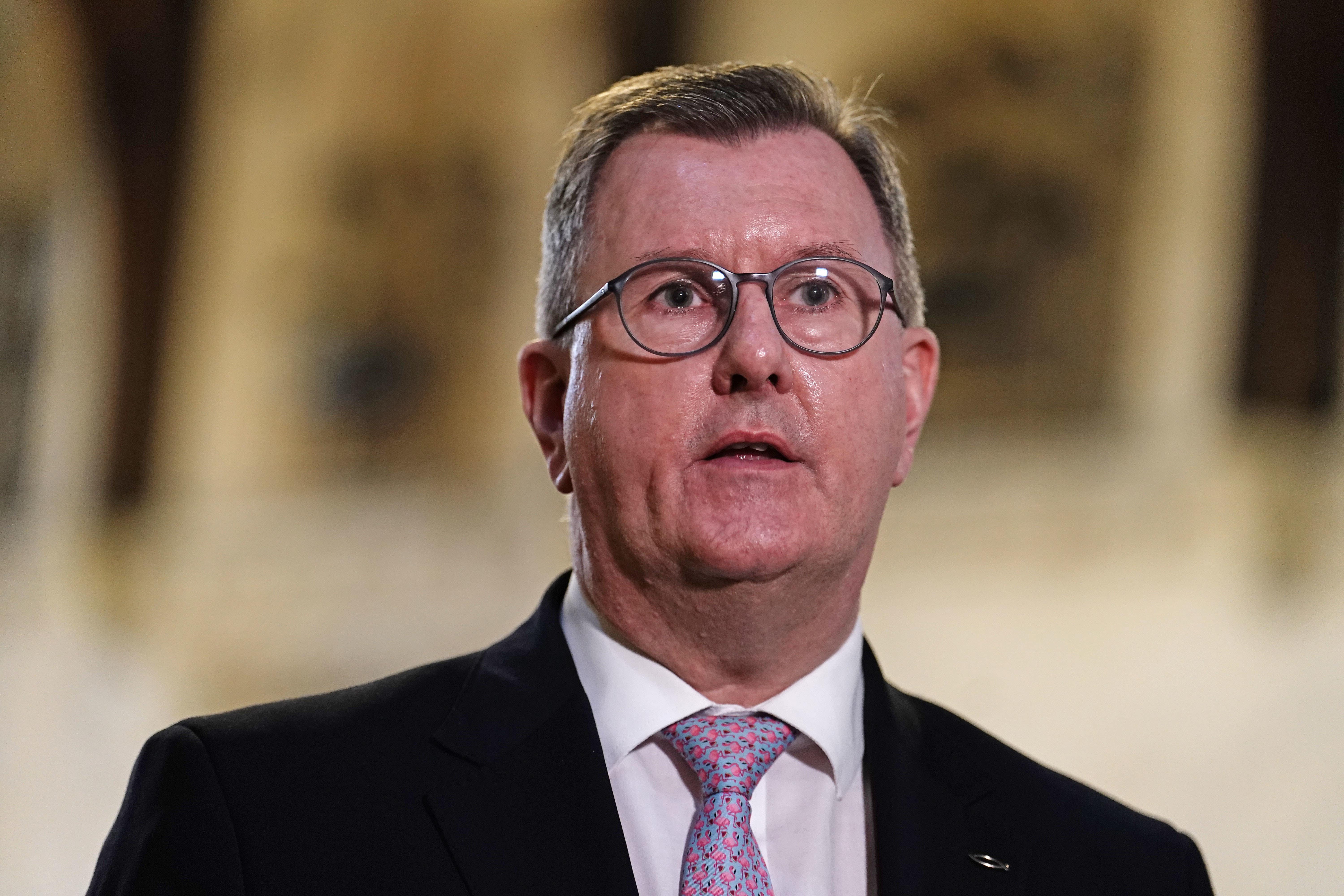DUP leader sets up panel to inform deliberations on Windsor Framework deal
Former DUP leaders and Stormont first ministers Dame Arlene Foster and Peter Robinson are among those who will sit on the new panel.

Your support helps us to tell the story
From reproductive rights to climate change to Big Tech, The Independent is on the ground when the story is developing. Whether it's investigating the financials of Elon Musk's pro-Trump PAC or producing our latest documentary, 'The A Word', which shines a light on the American women fighting for reproductive rights, we know how important it is to parse out the facts from the messaging.
At such a critical moment in US history, we need reporters on the ground. Your donation allows us to keep sending journalists to speak to both sides of the story.
The Independent is trusted by Americans across the entire political spectrum. And unlike many other quality news outlets, we choose not to lock Americans out of our reporting and analysis with paywalls. We believe quality journalism should be available to everyone, paid for by those who can afford it.
Your support makes all the difference.The DUP has established a consultation panel to inform its deliberations on the new deal on post-Brexit trading arrangements for Northern Ireland.
Former DUP leaders and first ministers Peter Robinson and Baroness Arlene Foster are among those on the eight-member panel announced by current leader Sir Jeffrey Donaldson.
Sir Jeffrey has made clear that the DUP will take its time to consider the Windsor Framework before deciding whether to back it and lift its current blockade of devolution at Stormont.
He said the panel would report to him by the end of March.
“Today I have established a group to commence and undertake a wide consultation process within Northern Ireland, listening and taking views on the Framework document,” he said.
“This work will be undertaken in parallel with our on-going engagement with the UK Government.
“The group will comprise both members of our party as well as independent thinkers who have standing within the broader community.
“They will want to engage with a broad section of the unionist and loyalist community, the business sector, civic society and others who want to see Northern Ireland prosper within the Union.”
Prime Minister Rishi Sunak and European Commission President Ursula von der Leyen unveiled the framework deal last week after months of intensive negotiations aimed at reducing checks on Irish Sea trade created by Brexit’s contentious Northern Ireland Protocol.
While cutting back on checks required on goods destined for use in Northern Ireland arriving from Great Britain, the deal also contains a new mechanism – the so-called “Stormont brake” – that offers a minority of MLAs (30 from at least two parties) the ability to refer to the UK Government its concerns about the introduction of new EU laws in Northern Ireland.
The Government could then potentially prevent the application of those laws in the region.
Mr Sunak has also committed to amending the 1998 Northern Ireland Act to provide further reassurance to unionists about the region’s constitutional status within the UK.
Some prominent DUP figures, including Lord Dodds and MPs Sammy Wilson and Ian Paisley, have already suggested that the deal potentially does not go far enough to address their concerns over trade and sovereignty.
The immediate future of devolution at Stormont rests on whether the DUP agree to go back into powersharing.
London and Brussels are both keen to see the institution restored ahead of next month’s landmark 25th anniversary of the Good Friday peace agreement.
Sir Jeffrey said the panel comprises individuals with “political, legal and business experience”.
Its members are DUP MP Carla Lockhart, DUP peer Lord Weir, former DUP leaders and Stormont first ministers Mr Robinson and Baroness Foster, businessman Ross Reed, lawyer John McBurney and DUP MLAs Brian Kingston and Deborah Erskine.